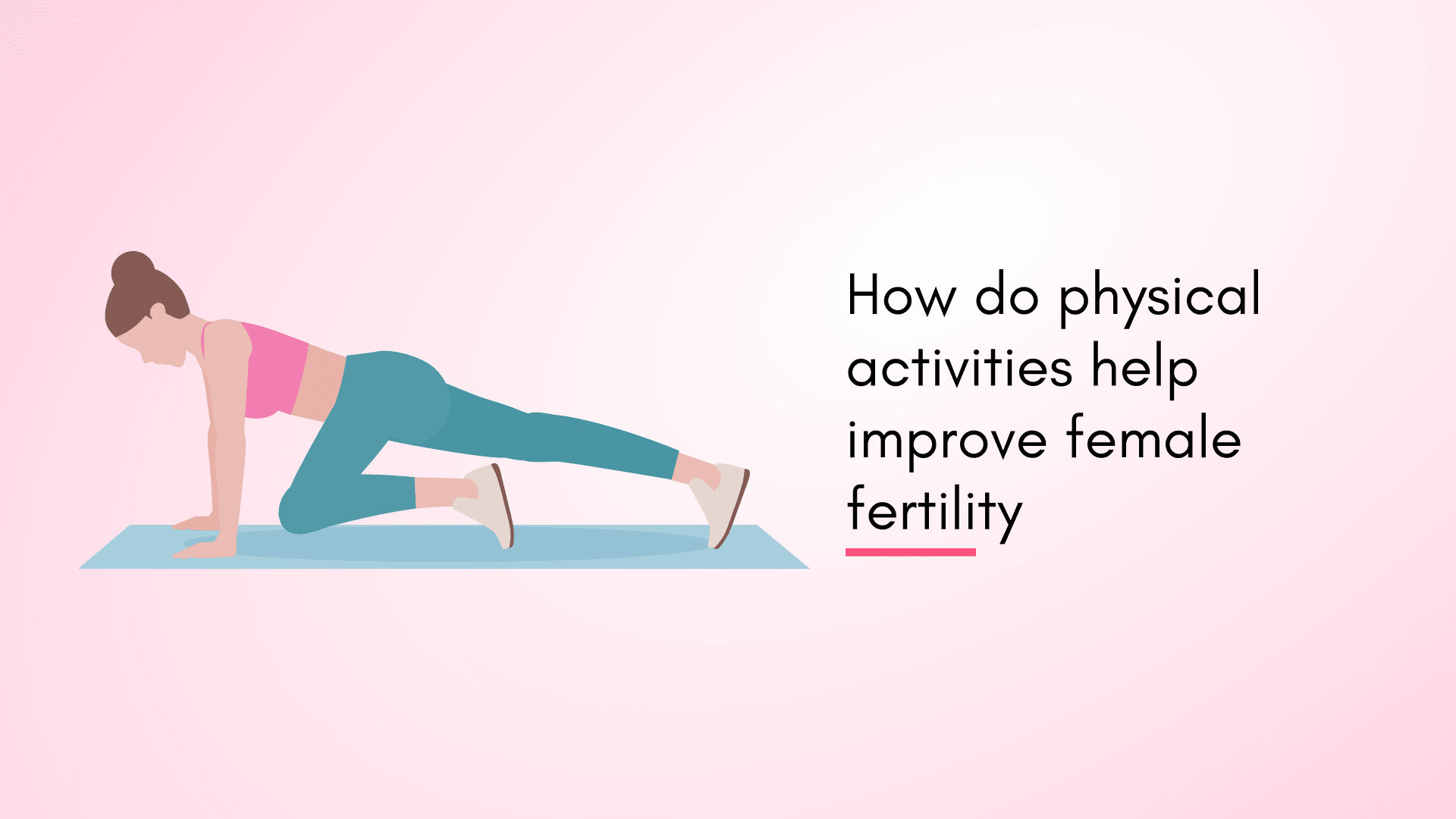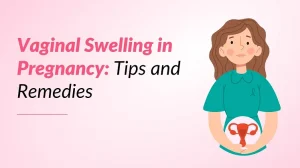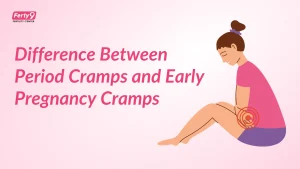Although lifestyle variables like nutrition, cigarette smoking, and alcohol intake are becoming recognized as significant contributors to the risk of subfertility, the function of exercise in fertility is unclear. Regular moderate-to-vigorous exercise throughout pregnancy has been linked to better mother and fetal health outcomes. Among women, increased physical activity and decreased sedentary behavior may promote fertility by maintaining body weight and hormone levels required for a higher possibility of conception. On the other hand, excessive physical exercise may prevent ovulation and reduce fertility.
Also read: How Iron Deficiency Impacts Fertility
How Physical Activities Help Improve Female Fertility
Supports Healthy Ovulation
By maintaining a healthy body weight and balancing hormones, exercise can help control ovulation. Frequent, moderate exercise, such as brisk can improve ovulation chances and promote reproductive health. Examples of those exercises include brisk walking and swimming. However, excessive activity might interrupt the menstrual cycle, so moderation is essential.
Boosts Immune System
For maximum immune-boosting effects, exercise should be moderate to intense and done for no more than 60 minutes. Your immune system and metabolism continue to get stronger if you practice this on a daily or almost daily basis.
Enhances Sleep Quality
Research indicates that engaging in moderate to intense physical activity for at least half an hour every day can enhance the quality of one’s sleep. There are several ways that physical activity might improve your quality of sleep, one of which is that it raises melatonin synthesis, a hormone that controls sleep.
Improved Insulin Sensitivity
By making your body more responsive to insulin, physical activity can drop your blood glucose levels for up to 24 hours or longer after your workout.
Reduced Risk of Chronic Diseases
Exercise and physical activity help prevent primary diseases and treat secondary diseases, which are beneficial to most of the body’s physiological systems. Exercise and higher levels of physical activity (PA) are linked to a lower risk of chronic diseases.
Improved Endometrial Health
According to research, several forms of exercise may be able to control and reduce the symptoms of endometriosis. Core and pelvic floor exercises are an excellent way to strengthen and stabilize your muscles if you have endometriosis. These workouts often include yoga and stretching. Walking and swimming can help lower both estrogen levels and inflammation. This may also help alleviate endometriosis symptoms.
Enhanced Metabolism
During activity, the body gradually absorbs more glucose from the blood, reaching a peak in 60–90 minutes. Then, as activity continues, blood levels of free fatty acids rise, and the muscle progressively switches to use more fatty acids rather than glucose.
Healthy Libido
Exercise has been proven to affect hormone levels, particularly testosterone, which is important for the arousal of the sexual drive. Exercises that are intense, like weightlifting, have the potential to temporarily raise testosterone levels, which might stimulate desire and lower stress.
Detoxification
It is true that physical exercise promotes the circulation of blood and lymph fluid, which are filtered by the kidneys and lymph nodes, respectively, aiding the body in eliminating harmful substances.
While there are many different ways that people manage their stress, exercise is one of the most popular methods of mental detoxification. Your body releases endorphins when you exercise. This improves your mood and reduces stress.
Hormonal Balance
Exercise is unquestionably one of the finest lifestyle habits women can adopt to promote good hormonal and metabolic health. Regular exercise can help reduce excess circulating estrogen levels. Moderate-intensity strength training and aerobic exercise have been shown in women to improve testosterone and progesterone levels.
Weight Management
The more exercise you get, the more calories your body burns for energy. You can reduce weight by creating a calorie deficit, which can be achieved by burning calories through physical activity and consuming fewer calories overall. The majority of weight reduction results from cutting calories.
Stress Reduction
According to studies, exercise raises dopamine levels in the brain, which reduces stress and even depression. Regular physical activity helps alleviate the symptoms of moderate depression and anxiety, boost your mood, help you relax, and boost your self-confidence. Your sleep, which is frequently disturbed by anxiety, depression, and stress, can also be improved by exercise.
Improved Blood Circulation
Moderate-to-intense exercise strengthens the heart muscle when done on a regular basis. This enhances the blood flow to your lungs and other parts of your body. Your blood’s oxygen content rises as a result, and your muscles receive more blood.
Types of Physical Activities Beneficial for Fertility
Take up a little exercising. Yoga, cycling, swimming, and brisk walking are a few examples of such exercises. In addition to lowering stress and regulating menstrual cycles, these workouts can help enhance insulin sensitivity, which in turn can boost conception. For women who are attempting to get pregnant, kegel exercises (pelvic floor exercises) are helpful.
Due to its combination of mild stretching exercises and relaxation techniques, Pilates (controlled movements focusing on posture and core) is also excellent for fertility. It helps people decrease stress and enhance blood flow to the product organ.
Also read: How Yoga Can Improve IVF Success Rates
Best Exercise for Conceiving
Cardiovascular Exercise
Moderate-intensity cardiovascular exercises such as brisk walking, swimming, cycling, and dancing decrease stress hormones, enhance circulation and encourage weight control.
Strength Training
Activities including the use of free weights, resistance bands, and bodyweight increase bone density, build muscular mass, and control hormones.
Yoga and Stretching
Meditating, breathing techniques, and yoga positions ease tension, increase flexibility, and promote relaxation and sleep.
Conclusion
Being overweight or obese can have an effect on the endocrine system, which can lead to ovulatory dysfunction and infertility by influencing the emergence of hormonal abnormalities and, in turn, the menstrual cycle. Women who have reproductive problems benefit from physical exercise in several ways, including better health and addressing conditions that may impair reproductive function.
In addition to lowering insulin resistance and stress levels, exercise can help women manage their hormones, including insulin, and improve the conditions that support reproductive health. Additionally, exercise increases blood flow to the uterus and ovaries, which in turn improves egg quality and uterine receptivity, both of which are important for conception.




























